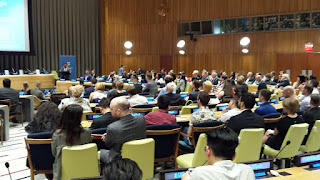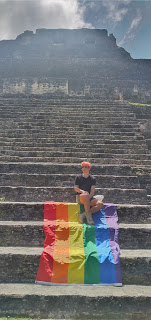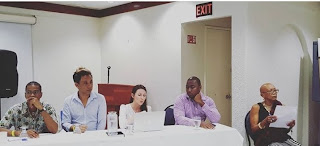Elder Gays-do we reflect on?
Posted 14th, February, 2013

Written 02/07/2013
by Seth Hemmelgarn
Larry Saxxon knows firsthand about the isolation and loneliness that researchers and others say are among the main challenges facing black LGBT elders. February is Black History Month, and in a recent interview, Saxxon spoke of going to the Castro district, the largely gay neighborhood with a reputation for favoring people who are young and white. He said the area is "flowing with the sea of wonderful humanity," but he indicated his time there hasn't always been pleasant.
"People walk past you, and they turn their heads," he said. The reaction appears to be, "What am I going to do with this old black queen?" said Saxxon, 60, who's been with his partner for 33 years and said, "I'm not trying to get laid." "I'm a human being, and I am an LGBT brother who's an elder who has some amazing stories to share," he said.
The experiences that Saxxon has lived appear to reflect those of many African American LGBT elders. Among other issues, they've lost numerous friends to AIDS while dealing with homophobia and racism. Saxxon is HIV-negative, which he called a "miracle," but he said, "I've lost 95 percent of my friends" to the disease. He recalled being the San Francisco AIDS Foundation's first black social worker in the 1980s.
"They said, 'There may not be a lot of black clients, Larry,'" Saxxon, who's multi-racial, said. However, he said, "The word came out, honey, and all these black queens came flying in from the Tenderloin," another San Francisco neighborhood. Eventually, most of the people on his caseload died.

The clients Mahosadha works with who are in their late 40s to early 70s face some of the same concerns as their straight counterparts, such as loneliness, isolation, and "the ongoing impact of racism in America," he said.
However, he said, those feelings "might be more intense" in the gay community "because I personally believe the LGBT community is more youth obsessed." He said the general African American community is centered in what he calls "the black church," and "many LGBT elders are disenfranchised from the black church because the black church continues to be rather homophobic and non-welcoming of LGBT people."
Mahosadha said he has "a strong support system," mostly made up by people who identify as straight. He said he's a "very spiritually motivated" person and sources of support include church and East Bay Meditation Center in Oakland.
Local efforts
There are efforts in San Francisco to recognize the contributions of black LGBT elders.
Byron Mason is the curator of Legendary: African American GLBT Past Meets Present, an exhibit showcasing the diverse history of Bay Area African American gay, lesbian, bisexual, transgender lives since the 1970s. Mason, who identifies as a black gay man, is also research partnerships director for the Center for AIDS Prevention Studies at UCSF.
Mason, 40, said, "valuing the history and knowledge and contributions of African American LGBT folks should be a higher priority."
He said another issue is "the changing demographics of San Francisco. ... Many working class people of color can't afford to stay here anymore."
Saxxon appears to have seen that firsthand in San Francisco's Fillmore district, which he moved to about 30 years ago.
"I remember when it was absolutely, solidly all black" in a large chunk of the neighborhood, he said, but "now I'm actually the only African American left in my whole block."
He said that although he regrets the loss of African Americans, he embraces the presence of Latinos, Asian Americans, and others.
"I'm trying to do the best I can to move with the winds of change," Saxxon said. "If you resist them, you snap."

Bartholomew Casimir
(Photo: Rick Gerharter)
(Photo: Rick Gerharter)
Bartholomew Casimir, a black gay man who helped start San Francisco's Black Coalition on AIDS and other efforts, is currently employed, but he's been looking for a job in the HIV/AIDS field, and he's been having trouble. Casimir, who's 60 and has been living with HIV, said he's "got the credentials," but "I've aged out of it."
He said his partner told him the problem is ageism, and Casimir expressed disappointment.
"We are a natural resource," he said. "That's what it means to be elderly to me."
However, Casimir also indicated he's hopeful about the prospects of the LGBT Aging Policy Task Force, which was launched in October and advises the San Francisco Board of Supervisors.
"I think that's going to make a difference," Casimir said.
Saxxon, the task force's volunteer outreach coordinator, said one aim of research the panel's involved in is to find out "what the lived experiences are of the LGBT community that's aging in San Francisco." Race is among the factors the group is looking at. Being part of the task force has already been helpful.
It's "given me a reason to come out every day," he said. Jazzie Collins, 54, a transgender woman of color who is vice chair of the task force, said, "My concern is long-term care facilities for our elderly community members." She pointed to worries that residents "end up going back into the closet" when faced with discrimination.
Lesbian author and poet Jewelle Gomez, 64, president of the San Francisco Library Commission, also pointed to health care challenges for LGBT elders.
"The majority of gay people aren't generally partnered, so if you're living far from your family or estranged from your family, creating networks of care is really important for queer people," Gomez, who's African American and Native American, said.
For people of color, she added, many "are not hooked into the mainstream. Sometimes it makes it a little more difficult to gain services or knowledge about services."
Asked about what needs to be done about issues facing black LGBT elders, Mason, the Legendary exhibit curator, said, "I think it starts by maybe just acknowledging that there's a problem. It's very difficult to address or have a conversation about a problem if people don't think it's a problem."
An opening reception for the exhibit will be held from 7 to 9 p.m., February 20, at the GLBT History Museum, 4127 18th Street, San Francisco. For more information, visit http://www.glbthistory.org.



Comments
Post a Comment